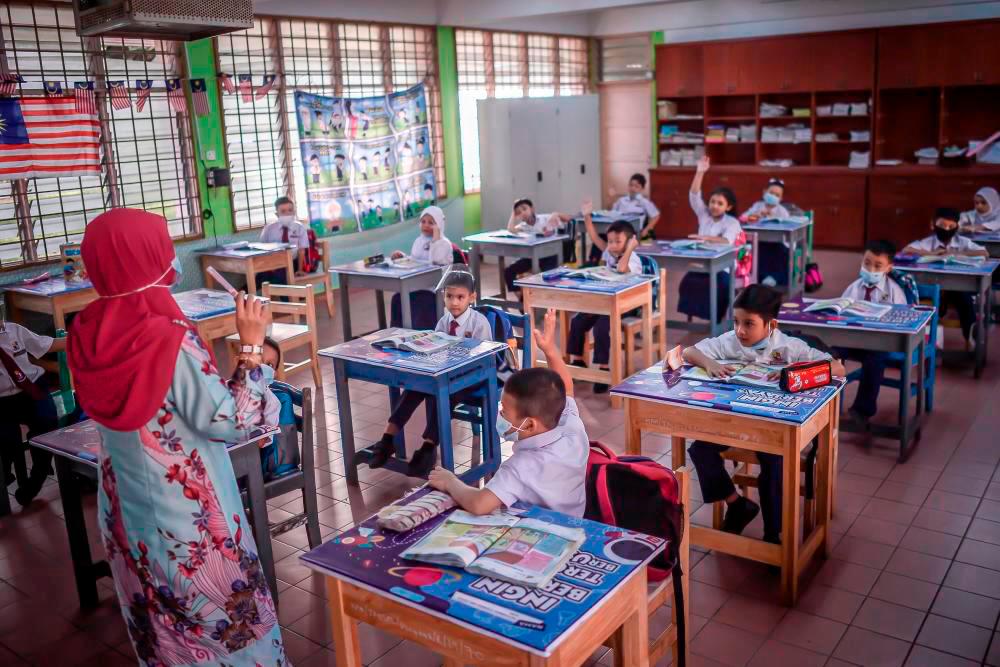WHILE childcare centres and their supervision remain under the radar of the Women, Family and Community Development Ministry, its minister Datuk Seri Nancy Shukri highlighted recently the importance of childcare training and early childhood education (ECE) as being crucial for ensuring competency and quality care at childcare centres in Malaysia.
However, the World Bank Malaysia Economic Monitor reported in April 2024,
“Malaysia’s long term growth prospects depend critically on bolstering its human capital by improving learning outcomes for children,” according to the report titled “Bending Bamboo Shoots: Strengthening Foundational Skills”.
The report concluded that advanced skills depend fundamentally upon strong foundational skills, which are developed through high-quality ECE and primary education.
What then is the simple definition of ECE?
In Malaysia, ECE is divided into two groups, children under the age of four attend nurseries or childcare centres known as “taska”, while children aged five to six attend preschools. Unfortunately, problems arise as the Social Welfare Department comes under the Women, Family and Community Development Ministry whereas the Education Ministry oversees preschools. Problems arise due to a lack of coordination between the two.
The Statistics Department revealed in 2022 that there were 9.19 million children under the age of 18 in Malaysia. There are many challenges to being a childhood educator in Malaysia and for that reason, many children are deprived of ECE.
A 2018 urban child poverty report done by the United Nations Children’s Fund on low cost flats in KL revealed that 51% of children aged five and six were not attending preschool. As this was pre-Covid, one can only conclude the figures might be worse now, as low income families struggle to regain economic stability.
Another other pressing issue is the number of fatalities reported in the media involving young children being left unattended at home while their parents were at work, which exposes the underlying issue of the lack of childcare centres catering to parents who both work to provide for their families.
Association of Registered Childcare Providers Malaysia former president and Toy Libraries Malaysia president Wong Poai Hong has spent more than 30 years in the ECE sector, and believes strongly in the importance of providing adequate childcare centres that not only provide ECE but also a safe environment for young children.
She said: “With so many women entering the workforce due to the need to contribute to the household income, the critical question arises: ‘Who is caring for the children of Malaysia?’
“With just 3,032 registered childcare centres (taska) throughout Malaysia, it is clear the majority of our children are in unregistered care centres, that are usually home based.
“In 2000, the Performance Management and Delivery Unit on Early Childhood Care and Education predicted Malaysia needed 25,000 childcare centres by 2025.
“We are way off the target, partially because of the pandemic, during which almost 50% of such centres closed. In fact, Malaysia has the lowest rate of enrolment of childcare in the Asean region,” she added.
According to Wong, there are currently no childcare subsidies. So, childcare becomes unaffordable, leaving many children in the care of unregistered baby sitters.
Another aspect that continues to be a thorn in the side of those wanting to open a childcare centre is the licensing issue with local councils, prompting many to operate illegally.
“The Childcare Centres Act 1984 is 40 years old and outdated and needs urgent review. New forms of childcare have emerged, including childcare on call and playgroups. Thus, there is an urgent need to review, streamline and expedite learning processes,” Wong added.
Infant and Early Childhood Mental Health specialist for the “Global Leaders for Young Children” project by the World Forum Foundation, Dr Nik Raihan Mohamed, has studied the importance of ECE and its impact on learning for children aged one to eight.
“Early childhood development, which encompasses the period from birth to eight years old, is critically important due to the rapid brain development that occurs during that time. Learning begins even before birth, with significant brain growth and neural connections forming at an astonishing rate.
“Children learn how to learn during their early years, primarily through play. Such activity with caregivers or parents stimulates brain development by enhancing cognitive skills, developing language and communication development, encouraging physical development and building strong relationships.
“Malaysia at the moment does not have enough registered childcare centres in Malaysia, let alone quality ones,” she added.
“To compensate for the lack of childcare centres, toy libraries were set up in poor communities by widening their access to a range of toys that families could not otherwise afford.
“Additionally, toy libraries offer valuable resources for parents and home based baby sitters.
Association of Registered Childcare Providers Malaysia president Norsheila Abdullah said the different types of childcare centres must register according to Childcare Centre Act,
“The government needs to step in and provide subsidies to registered childcare centres or to all parents who send their children to registered childcare centres.









